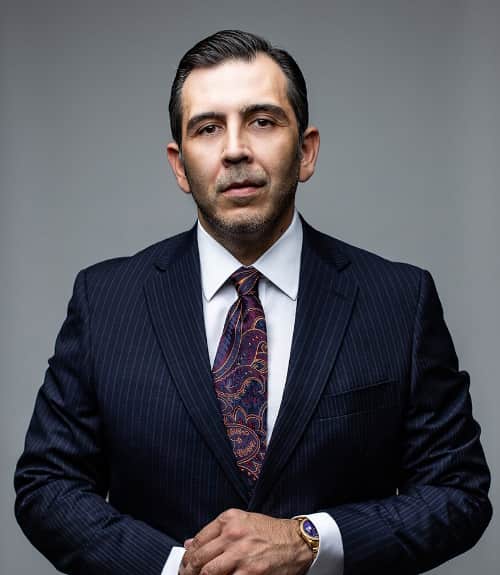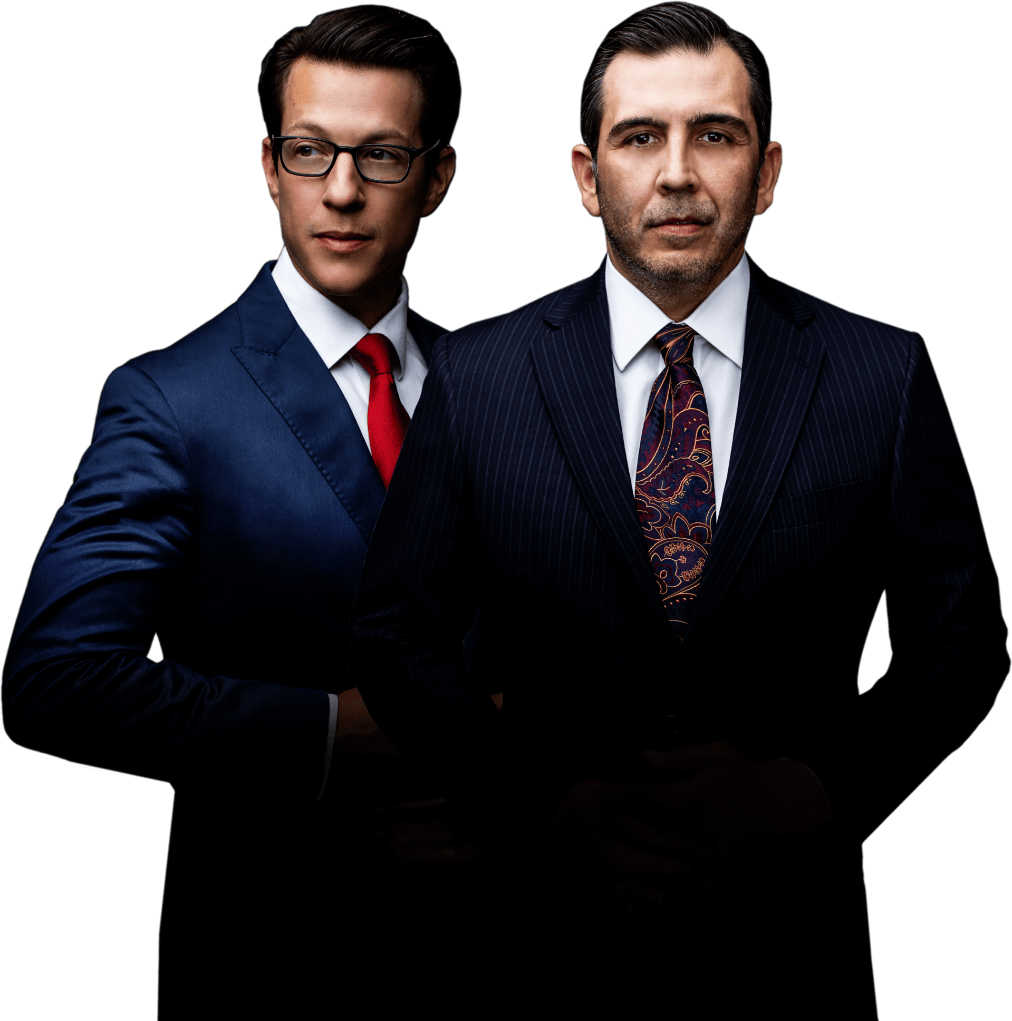When someone else’s carelessness causes you harm, your life can change in an instant. The good news is that Texas law gives you the right to seek full and fair compensation for your injuries. You shouldn’t have to face the physical, emotional, and financial aftermath of an accident on your own.
At Gonzalez Druker Law Firm, our Laredo personal injury attorney is here to guide you through every step of the legal process. We will fight for your rights, hold the responsible party accountable, and work to get you the compensation you deserve through a Laredo accident claim.
Why Choose a Laredo Personal Injury Lawyer from Gonzalez Druker Law Firm
If you or a loved one has been seriously injured in Laredo, the personal injury lawyer you choose can make a major difference in the outcome of your case. At Gonzalez Druker Law Firm, we are proud to be trusted advocates for injured individuals across South Texas.
- Personalized Client Focus: We understand that every injury case is different. Our team takes the time to learn your story, understand your needs, and build a legal strategy that gives you the best chance of a full recovery.
- Proven Results: Our firm has a strong track record of securing fair compensation for clients who have suffered from car accidents, truck crashes, workplace injuries, and other serious incidents. We are not afraid to take on insurance companies or go to trial when necessary.
- Supportive and Accessible: We are here when you need us. From your free consultation to the final resolution of your case, our team is responsive, communicative, and always focused on your best interests.
When you choose Gonzalez Druker Law Firm, you are choosing a team that understands the impact of a serious injury and knows how to fight for everything you deserve.
Meet Founding Attorney Marc A. Gonzalez
 Marc A. Gonzalez is the lead personal injury attorney at Gonzalez Druker Law Firm and a trusted advocate for injury victims in Laredo and across Texas. A native of Laredo, Marc began his legal career as a prosecutor in Webb County, where he gained valuable courtroom experience and developed a sharp ability to build strong, strategic cases. In 2008, he founded his firm with a commitment to helping people in his hometown navigate some of the most difficult moments of their lives.
Marc A. Gonzalez is the lead personal injury attorney at Gonzalez Druker Law Firm and a trusted advocate for injury victims in Laredo and across Texas. A native of Laredo, Marc began his legal career as a prosecutor in Webb County, where he gained valuable courtroom experience and developed a sharp ability to build strong, strategic cases. In 2008, he founded his firm with a commitment to helping people in his hometown navigate some of the most difficult moments of their lives.
With nearly two decades of legal experience, Marc has successfully represented clients in a wide range of personal injury matters, including car accidents, truck crashes, workplace injuries, and complex wrongful death claims in Laredo. He is known for his relentless preparation, deep knowledge of Texas injury law, and dedication to securing the maximum compensation for his clients. If you are looking for a personal injury lawyer in Laredo who combines local insight with proven legal skill, Marc A. Gonzalez is ready to help.
Most Common Types of Personal Injury Claims We Handle in Laredo
Gonzalez Druker Law Firm has proven experience helping injury victims in Laredo and throughout Texas recover millions in compensation for all types of personal injury cases. The injury victims and their families we serve typically are those suffering serious bodily injury or death resulting from:
- Car Accidents
- 18-Wheeler Accidents
- Motorcycle Accidents
- Pedestrian Accidents
- Premises Accidents
- Construction Accidents
- Work Injuries
No matter the circumstances, if you are injured in an accident in Texas, contact our team of Laredo truck accident attorneys to provide you with a free case evaluation. We have the knowledge and experience to help you maximize the compensation you deserve.
How Long Do I Have to File a Personal Injury Claim in Laredo?
According to Tex. Civ. Prac. & Rem. Code section 16.003, you have two years to file a personal injury claim before the statute of limitations ends. If the statute of limitations ends before you file your claim, you will lose your right to file, along with your right to recover compensation.
Some exceptions can change this two-year time period, so it’s important to speak to an attorney about your case as soon as possible. Our firm offers free, no-obligation consultations for personal injury cases, so you have nothing to lose by contacting our firm today.
Do I Need A Laredo Personal Injury Attorney?
Unlike insurance companies, the legal team at Gonzalez Druker Law Firm, PLLC, will fight for your best interests as true advocates on your side. Our Laredo pedestrian accident lawyer will fight for the maximum amount of compensation you deserve. Insurance companies, on the other hand, are rarely looking out for your best interest. Being businesses at heart, they are focused on what will save them the most amount of time or money. They will use tactics to deny or devalue your claim to benefit their bottom line. Learn more about how we can help you today during a free consultation.
What Damages Can I Recover with a Laredo Injury Claim?
1. Physical pain. An injured victim can recover compensation for past and future physical pain. The amount of that compensation is decided at the discretion of a jury. Past physical pain can be established through the testimony of the injured and/or inferred from the seriousness of the incident causing the injury. Future pain can be established by evidence demonstrating that the physical pain from an injury in reasonable probability likely to continue into the future.
2. Mental anguish. An injured victim may recover compensation for past and future mental anguish in most personal injury cases where a physical injury is present. Even without physical injury, mental anguish damages may be awarded if there is clear evidence of severe emotional distress, such as grief, despair, or loss of enjoyment of life, that significantly disrupts the victim’s daily routine.
3. Disfigurement. Disfigurement refers to injuries that alter a person’s appearance in a way that causes visible deformity or imperfection, often leading to embarrassment or a desire to conceal the affected area. Damages are awarded based on the severity and duration of the disfigurement, with common examples including amputations, scars, burns, and misshapen limbs.
4. Physical impairment. Physical impairment relates to an injured victim’s loss of enjoyment of life. This usually includes an inability to engage in hobbies or other recreational activities.
5. Medical expenses. An injured victim may recover compensation for all reasonable and necessary medical expenses incurred as a result of an event and those that in reasonable medical probability will be incurred in the future. Expert testimony is often required to prove that medical expenses were reasonable and necessary.
6. Lost Earnings. An injured victim may recover compensation for lost earnings, such as wages. For example, an injured victim who must be out of work for six months while recovering from surgery may recover compensation for wages lost during that time.
7. Loss of earning capacity. Loss of earning capacity refers to an injured person’s reduced ability to earn income in the future, even if they have not lost wages yet. It is based on factors like past earnings, physical limitations, ability to work with pain, long-term effects of the injury, and expected work-life span.
8. Loss of consortium. Loss of consortium refers to the loss of love, affection, support, companionship, and care resulting from a family member’s injury, and is available to a spouse or child of the injured person. These claims are tied to the injured person’s case, with spousal claims covering emotional and relational losses, and children’s claims evaluated based on the impact of the injury on the parent-child relationship and the child’s age, needs, and available support.
9. Loss of services. Loss of services is different from loss of consortium damages in that it relates to the performance of household and domestic duties. Loss of services is also derivative of the injured victim’s personal injury claim and is available to a spouse and parent of an injured child.
Call Our Firm Now, Our Laredo Injury Lawyer is Ready To Help
- Keep medical bill collectors from bothering you while you are undergoing treatment for your injuries and recovering.
- Access the healthcare experts and specialists you need to get you on the road to recovery.
- Ensure that critical evidence necessary to establish the responsible party’s liability in the case is preserved and gathered. For example, in a motor vehicle accident, critical evidence that may need to be preserved includes vehicle components, electronic devices, video recordings, audio recordings, and many other items, depending on the circumstances of the case. We need to act fast to make sure that critical evidence is not lost or destroyed.
- Assemble the best team of experts and consultants to establish the responsible party’s liability and your damages, such as investigators, accident reconstruction experts, specialist health care providers, life care planners, vocational experts, economists, etc.
- Maximize and obtain the compensation you deserve through settlement or a jury verdict.
Our Laredo motorcycle accident attorneys are ready and willing to begin working on your case today. If you have a question about your case or would like to know how much your claim could be worth, please give us a call. We would love to sit down with you in a free consultation to listen to your story and help you understand your rights and legal options.
To ensure you have an experienced legal advocate on your side during this challenging time, call (956) 728-9191 to schedule a free consultation today.
